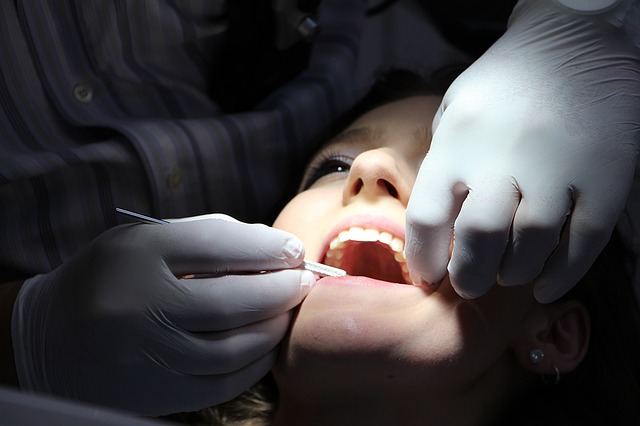Fortune Cookie Friday: Get a Hold of Your Habits
There was a recent article in the Associated Press about flossing and its lack of necessity for good oral health. Apparently, there is not enough evidence to prove that flossing actually improves your oral health, according to research conducted over the past decade.
Wait, my dentist told me that it was important to floss every day! Well, there are multiple arguments that the study was not accurate, and that you should not give up on flossing just yet.

Flossing is one of those good habits your parents told you to do. When it was time for bed, I would tell my kids “Make sure you brush your teeth, and don’t forget to floss.” Even if it turns out that flossing doesn’t prevent cavities, there are certain spots a toothbrush can’t clean. Floss can get there and help eliminate that ugly “food stuck in your teeth” look. Trust me, nobody looks good with spinach stuck in their smile.
You probably have plenty of habits in your life, good and bad. You may brush your teeth after every meal, or drink plenty of water. Perhaps you have a habit of biting your nails, or picking your nose. Admit it! We all do it—at least use a tissue. These habits are hard to break.
Imagine it’s the night before a big test. You sit there pouring over your notes, hoping that you will remember the quadratic equation, the names of all the presidents, or the names of all the bones in the human body. You cringe that you should have started studying earlier—like three weeks ago. Instead, you struggle through and hope for the best. This is an example of a bad study habit. You might do well on that current test, but the information is only stored in your short-term memory. If you had studied a little each day, it would move from short term to long-term. Besides lasting longer, there is a greater capacity in your long-term memory.

Some of the things you learn you will want to remember far into the future. OK, so maybe knowing all of the presidents might not be that important to you, but if you were studying to be a doctor—which takes a long time—you will want to remember most of what you learn in school. Studying every day is a good habit. It will help you succeed at your goal at becoming a doctor.
It should be obvious that good habits can improve you and bad habits can harm you. This is especially true when it come to your goals in life. For example, you want to run the local marathon and you need to train. You certainly wouldn’t go to the race without training. You could seriously injure yourself if you’re not prepared to run the long distances of a marathon. So, you make sure that you include some running into your daily schedule. You will soon build up endurance, and with practice, you will be in shape to take on the distance of the race.

Maybe you are taking piano lessons, or a foreign language. The only way you will improve, and master the subject, is to practice. “Practice makes perfect.” You might not cause any bodily injury if you don’t practice the piano, but if you were going to perform on stage in front of an audience, you will want to be sure you know the piece of music well. An injured psyche can hurt just as much as a torn muscle.
An example of an incredibly bad habit is smoking. There are numerous health problems caused by smoking, not to mention nicotine is very addictive. It doesn’t take long to become addicted to smoking, or other drugs. Unfortunately, it can take longer to quit.

So how long does it take to make a good habit? Well, that depends. There is a saying, “It takes 21 days to make, or break, a habit.” That’s not exactly true. Dr. Maxwell Maltz, a plastic surgeon in the 1950’s, originally coined the term after he noticed that it took at least that long for patients to get used to seeing their new faces. It also took “at least 21 days” for amputees to adjust to their new situation, and not feel a phantom limb. He ended up publishing this and his other findings on behavior change in his book, Psycho-Cybernetics.
His original quote was fine, but later people shortened it and fundamentally changed its meaning. That “21 days to make, or break, a habit,” quote was easy to accept, short enough to sound doable, and long enough to sound logical. However, they left out two key words, “at least.” That is the minimum amount of time it would take for “an old mental image to dissolve and a new one to jell.” Therefore, it could conceivably take longer. So, now what?
Phillippa Lally, a health psychology researcher at University College London, has a better answer. She published a study in the European Journal of Social Psychology, which examined the habits of 96 people over a 12-week period. The habits were an eating, drinking, or activity behavior on a daily basis, like exercising for 15 minutes each day. What she found was that it takes more than 2 months before a new behavior becomes automatic—66 days to be exact. Some of the people took as long as 254 days. So, it can take some time to make or break a habit. Think about it, this could put you in mid-September before your New Year’s resolution becomes a natural part of your life. No wonder it’s so hard to keep them.

Ah, but don’t fret. All is not lost. You can still improve yourself with good habits. The key is to get started right away. The sooner you start, the sooner you will improve. If you have a bad habit, quit now. If you recently took up a bad habit, like smoking, definitely quit now. If it is less than 21 days old, you will likely be able to kick the habit for good.
With a little patience and perseverance, you can make good habits. Consider what habit you want to do, and commit to repeating that habit for 66 days. It also helps to pick a specific time of day, and place, to help you remember and stay committed. Good habits may be hard to make, but once you get a handle on them, they are worth it.




